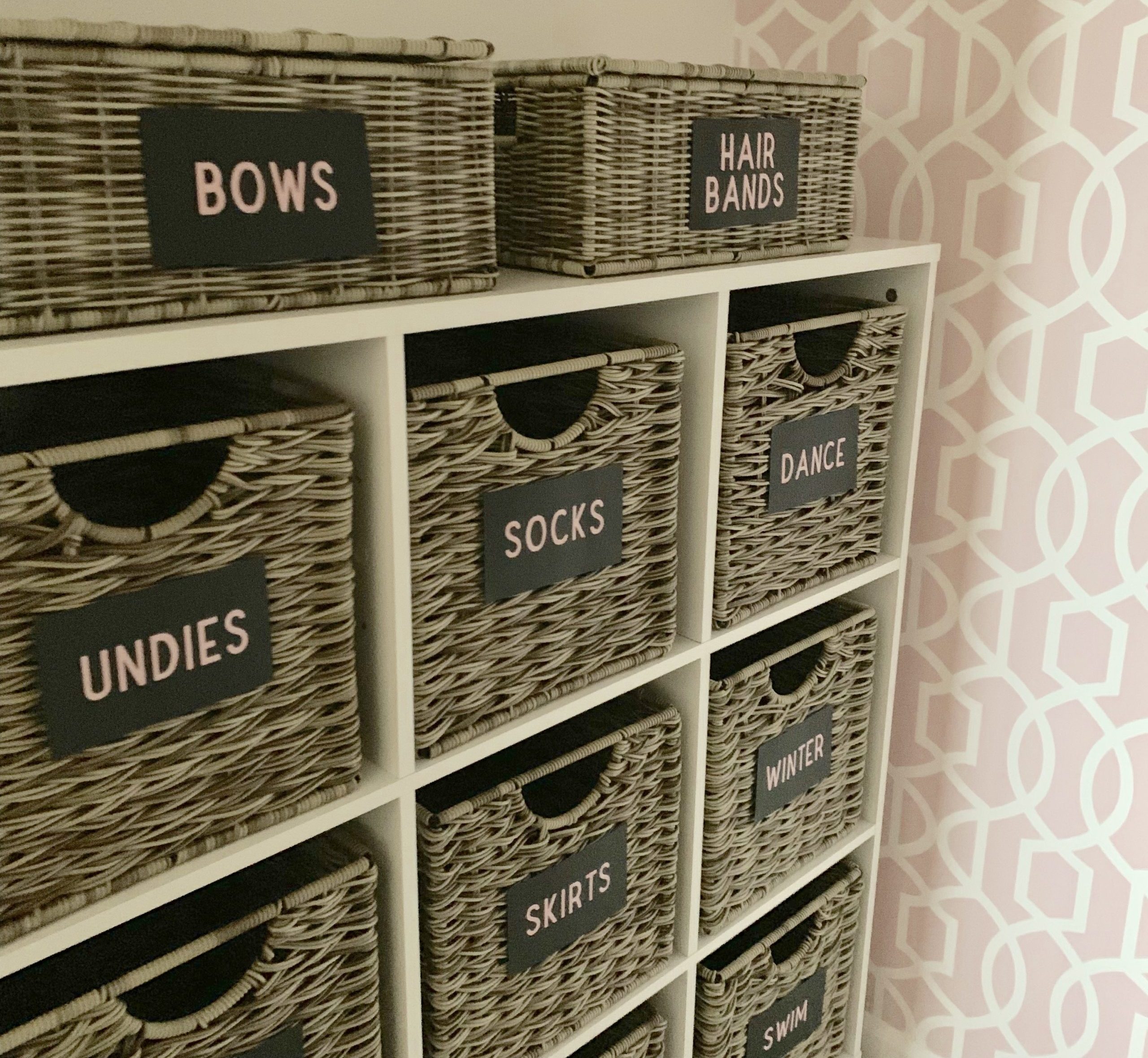Organization is not necessarily an innate trait, but a skill we can acquire through learning, forming habits, and establishing routines. Being organized is a valuable skill that can benefit us at any age!
As my oldest child reached 18 months, I found myself contemplating the most practical approach to clothes and toy storage. Involving her in the process, she eagerly “helped” me organize her clothes. Embracing age-appropriate methods, I let go of my meticulously folded onesies and established a system where she could place items in easily accessible baskets. As she continued to grow, I gradually taught her to roll, fold, and hang her clothes.
Balancing the demands of being a busy working parent, I deeply appreciate the assistance from those little hands. My tailored systems not only enable me to tackle essential chores but also empower my children to take responsibility for managing their belongings. This approach instills a sense of ownership in them when it comes to putting away their items.
 As parents, it is our responsibility to equip our children with the tools they need to succeed in life, and teaching them organizational skills is a crucial part of that journey. Here are some practical strategies and effective techniques that can help you teach your children the art of organization, fostering habits that will serve them well throughout their lives.
As parents, it is our responsibility to equip our children with the tools they need to succeed in life, and teaching them organizational skills is a crucial part of that journey. Here are some practical strategies and effective techniques that can help you teach your children the art of organization, fostering habits that will serve them well throughout their lives.
Break Tasks Into Manageable Steps
Help your children tackle larger tasks by breaking them down into smaller, more manageable steps. Teach them to create to-do lists and prioritize tasks based on importance and deadlines. This approach not only prevents overwhelming feelings, but also instills a sense of accomplishment as they complete each step.
Guide them in organizing their schoolwork, including keeping track of assignments, creating study schedules, and utilizing folders or binders for different subjects.
Create a Structured Routine
Establishing a daily routine provides children with a sense of structure and predictability. Help your child develop a schedule that includes designated times for homework, chores, play, and relaxation. Encourage them to use calendars or planners to keep track of their activities. Consistency and routine not only enhance organizational skills, but also promote a sense of responsibility and time management.
Foster Digital Organization
In today’s digital age, teaching your children digital organization skills is just as important as physical organization. Encourage them to organize files, documents, and emails on their computers or tablets using folders and labels. Teach them the significance of creating backups and maintaining a clean digital workspace.
Emphasize the importance of online security and the responsible use of technology, such as managing passwords and being mindful of privacy settings. By imparting these skills, not only are you enhancing their digital literacy, but you’re also equipping them with essential tools for a secure and organized online presence. This preparation will set them up for success in the work place and life in general!
Lead by Example
Children often learn best by observing and imitating their parents’ behavior. By keeping our home environment tidy, managing our time efficiently, and demonstrating systematic approaches to daily tasks, we teach our children the art of living in an organized manner. Through practicing organization in our own lives, we establish a positive model for our children to emulate.
Organize Physical Spaces
Teaching your children to keep their physical spaces organized is an essential aspect of promoting overall organization. Provide them with age-appropriate storage solutions such as bins, shelves, and labeled boxes for toys, school supplies, and clothing. Teach them the importance of tidying up after play or study sessions. Encourage them to maintain order in their bedrooms, study areas, and playrooms.
Make cleaning and organizing a fun activity by turning it into a game or a race against the clock. We used to love the clean up song–but now, a healthy competition between siblings or reward of screen time works best in our home!
Teaching children to be organized is a valuable life skill that sets them up for success in so many areas of life. By breaking tasks into manageable steps, creating routines, leading by example, and organizing physical and digital spaces, you can empower your children with lifelong organizational skills.










